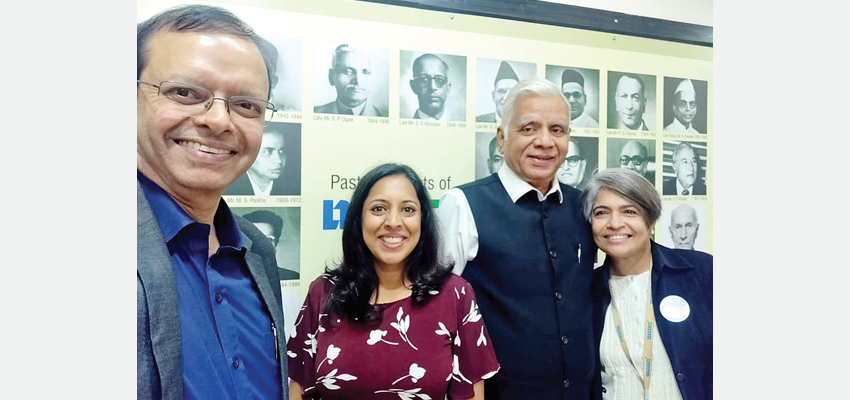Resetting Our Lives

It’s very important in COVID times that you become uncomfortable with the way you are and make some changes happen
If there is one thing COVID has accomplished in these five months, it has encouraged or forced many of us to put our pre-COVID life under a microscope, reassess our priorities and look at living our future lives with a larger sense of purpose. These moments of epiphany may have come because the sudden pause in frenetic activity and prolonged lockdown periods at home have taught us the value of our own thoughts and given us an honest mirror into the number of non-values adding activities and behaviors that had characterised our past lifestyles.
In my own case, after living an executive lifestyle of 200 travel days per year, crazy food habits and multiple interactions with people around the world as an almost compulsive way of life for over thirty years, the focus on health, reading, writing and living a useful life between numerous webinars and video conference calls has given me a clear pathway to the future. Focus on adding value is my commitment to entrepreneurs who seek consulting and mentoring, to youth who need to be skilled for the jobs of the future and to underprivileged communities whose lives can be changed with some money and some time. And for friends who might say “But wasn’t that your life anyway, with 5FWorld, Global Talent Track and Pune City Connect?” Let me hasten to add that removing multiple distractions can ensure a larger commitment to these pursuits in future.
A young professional who has become a good friend and fellow conspirator for events at MCCIA, TiE and many forums, Vandana Saxena has been a useful catalyst to this future focused thinking. Speaking at the Rotary Club of Riverside, Vandana very rightly brought this out by saying “Just because you are the way you are, it doesn’t mean you have to be always this way” and suggested that we should analyse our past mental programming and actually seek change. And who does our previous programming happen? It could well be because the unwritten or oft-repeated dictums of our childhood and youth from family, society and even the friends we hang out with have become hardwired into our psyche. And this becomes ingrained in our attitudes and behaviour and has to be consciously addressed and corrected.
As an example, one of the biggest grouses that Vandana and I and many others share is the attitude shown towards women by men including some who see themselves as “supporters of women.” Formative years in India have often been under the shadow of elders with men pontificating and being breadwinners and women content to be home makers and feed and support the family in myriad ways. In this male-dominated climate, the psyche of both genders has been affected. Some men took it as a license to be violent and others as a legitimate reason to be patronising towards “the weaker sex”. How often even in the highest echelons of society do I hear “please bring your wife along” and cringe, not just at the phrase but everything it implies in terms of gender balance.
Prolonged lockdown periods at home have taught us the value of our own thoughts
It’s very important in COVID times that you become uncomfortable with the way you are and make some changes happen. Our minds are programmed by family, society and media—we need to unlearn. As Vandana says, what are the other unwritten rules that you have followed as a child that remain with you today? Respect for elders irrespective of their ability to inspire us transcends into the workplace where the boss believes that he has divine right to rule over lesser destinies. How often do we deny ourselves the privilege of doing what we think is right with the societal fear “Log kya kahenge?” or “what will people say?” Don’t we instinctively believe that if you are important and have attained a position or status above one’s peers, its ok to be rude to others?”
The imperative to understand what our own unsaid beliefs are and what is essential for us to change can come through holding a mirror to our own past behaviour and analysing what we must change. Have we tried too hard to be legitimate when the time has come to think about legacy? Do we try so hard to be liked in every forum and every party that we are unable to be authentic. If we believe that these attributes are no longer essential to our future happiness, it’s important to set out on that path with steadfast resolve and see how we can become truly different! Vandana, like many of us has been through difficult personal and professional times, brought up two wonderful kids as a single mother and is today standing up for what she believes is right and carrying the aspirations of hundreds of young entrepreneurs with her.
Rarely does anybody get a second chance to make a first impression but post-COVID we will have had a paradigm shift for individuals, businesses and countries where India can take the opportunity to lead. That will need a renewed commitment from all of us and we have it in us to make it happen!